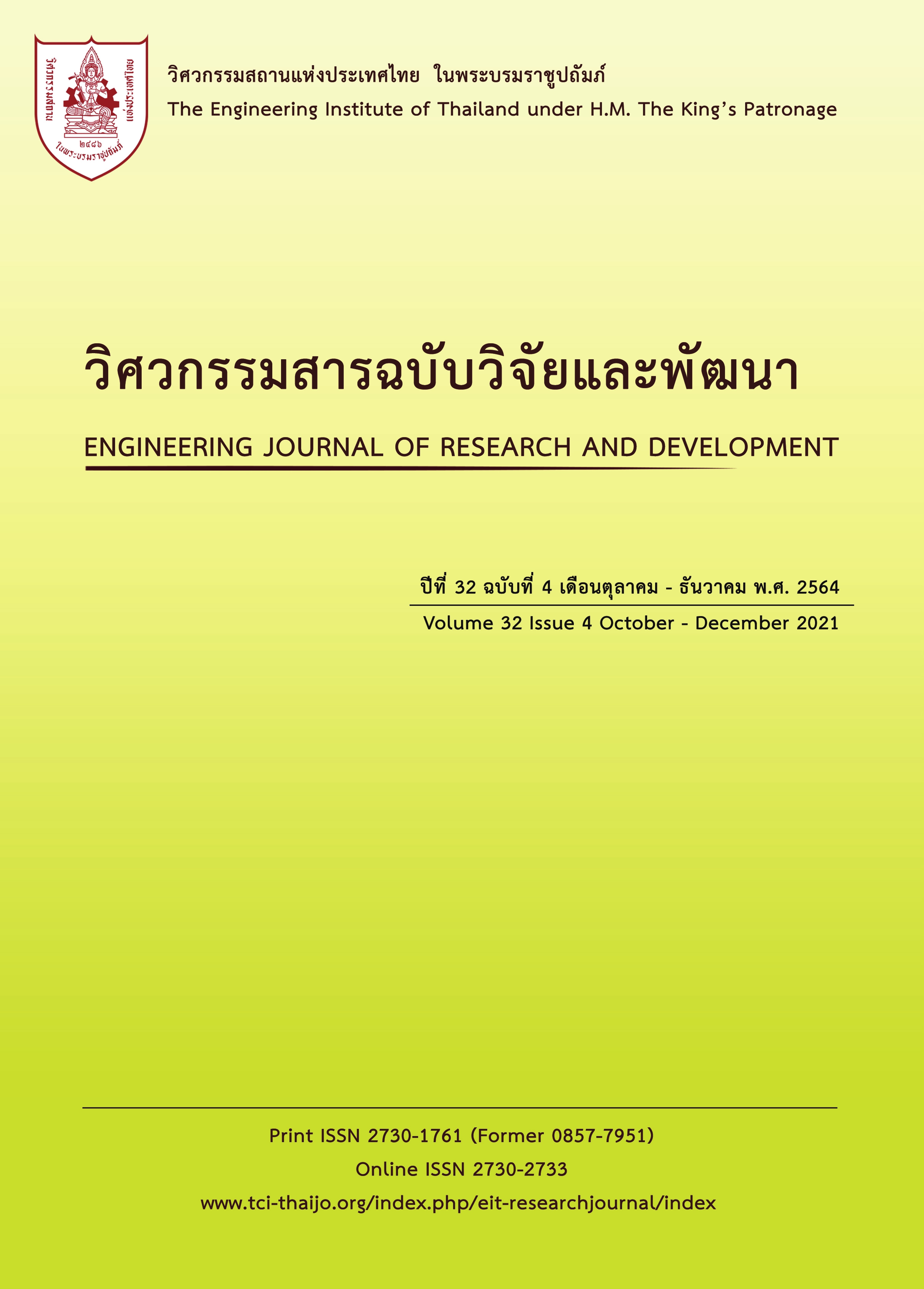STRATEGIC TRANSPORTATION MANAGEMENT OF DOMESTIC CONSTRUCTION-REBAR MANUFACTURER
Main Article Content
Abstract
Because of intense competition, many manufactures have outsourced transportation to leverage capitals and focus on their core activities. Nevertheless, this may lead to an undesirable outcome, similar to a case study steel manufacturer. As one of the largest recycle steel mills in Thailand, the case study manufacturer specializes in elongated rebar steels for domestic construction. It provides a free delivery within the areas of its factories and the greater Bangkok using transportation providers. The analysis of the historical data shows that the manufacturer can save 12.97 % of its transportation expense by selecting suitable transportation providers and monitoring the shipping volume per truck. The expense comparison and the further investigation by a project team reveal improvised planning, lack of preparation, and unclear guideline as possible causes of high transportation expense. As a result, this research applies Supply Chain Operations Reference (SCOR) Model and proposes transportation capacity revision, provider selection, and default transportation provider of each route. After the implementation, the manufacturer can reduce transportation rate to 17.97 Baths/ton or 3.54 million Baths/month and reduce 0.29 day of truck-booking lead time.
Article Details
The published articles are copyright of the Engineering Journal of Research and Development, The Engineering Institute of Thailand Under H.M. The King's Patronage (EIT).
References
Navavongsathia, A., Janthongpan, S., Vuthipadadorn, D., Farangthong, S., Sothiwan, T., and Pomsa, C. Total Intermodal Transportation Cost Affecting Transportation Mode Choice of Auto Parts Industries in Samutprakarn Province. Journal of King Mongkut’s University of Technology North Bangkok, 2014, 24 (1), pp. 135–145
Sathapongpakdee, P. Industry Outlook 2019-2021: Road Freight Transportation Service. Available from: https://www.krungsri.com/th/research/industry [Accessed: 31 August 2019]
Supply Chain Council. Supply Chain Operation Reference Model: SCOR Version 12.0. Pittsburgh, PA: Supply Chain Council, Inc., 2017
Hwang, Y., Lin, Y. and Lyu, J. The performance evaluation of SCOR sourcing process—The case study of Taiwan's TFT-LCD industry. International Journal of Production Economics, 2008, 115(2), pp.411-423.
Oleksandr, V. Integration of SCOR-Modeling and Logistical Concept of Management in the System of Internal Transportation of Milk Cooperative. Mediterranean Journal of Social Sciences MCSER Publishing, 2015, 6(1), pp. 14-24
Lima-Junior, F. and Cesar, R. Combining SCOR® Model and Fuzzy TOPSIS for Supplier Evaluation and Management. International Journal of Production Economics, 2016, 174, pp. 128-141
Lai, K., Ngai, E.W. and Cheng, T. C. Measures for evaluating supply chain performance in transport logistics. Transportation Research Part E: Logistics and Transportation Review, 2002, 38(6), pp.439–456.
Seifbarghy, M., Akbari, M. and Sajadieh, M. S. Analyzing the supply chain using SCOR model in a steel producing company. The 40th International Conference on Computers & Industrial Engineering, Awaji, 25-28 July 2010, pp.1-63
Cordell, A. and Thompson I. The Procurement Models Handbook. Routledge., 2019
Yahya, S. and Kingsman, B. Vendor rating for an entrepreneur development programme: a case study using the analytic hierarchy process method. Journal of the Operational Research Society,1999, 50(9), pp.916–930.
Parish, R. Service level agreements as a contributor to TQM goals. Logistics Information Management, 1997, 10 (6), pp. 284 – 288
Beaumont, N. Service level agreements: An essential aspect of outsourcing. The Service Industries Journal, 2007,26(4), pp.381–395
Ivarsson, I. and Claes, G. International technology transfer through local business linkages: the case of Volvo Trucks and their domestic suppliers in India. Oxford Development Studies, 2004, 32(2), pp.241–260.
Bragg, R. and Kumar, S. Building strategic partnerships between companies and suppliers, the right relationship is everything. Industrial Engineer, 2003, 35(6), pp. 39–44.
Biemans, W. and Brand, M. J. Reverse Marketing: A Synergy of Purchasing and Relationship Marketing. International Journal of Purchasing and Materials Management, 1995, 31(2), pp.28–37.
Badi, I. and Pamucar, D. Supplier selection for steel making company by using combined Grey-MARCOS methods. Decision Making: Applications in Management and Engineering, 2020,3(2), pp. 37-48.
Sharma, P., Phanden, R. K. and Baser, V. Analysis of site selection based on factors rating. International journal of emerging trends in engineering and development, 2012, 6(2), pp.616-622.


